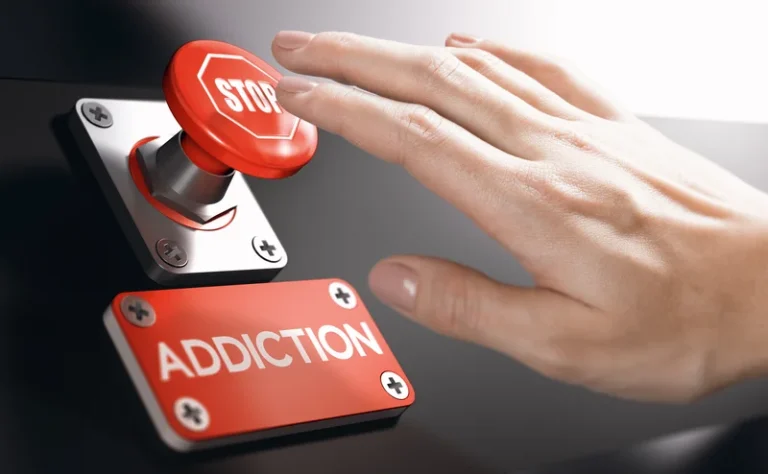
Depending on the severity of the alcohol use disorder, this stage can be mildly annoying or severe. Early withdrawal symptoms include headaches, anxiety, nausea, irritability and shaking. Physiologically, alcohol alters the balance of chemicals in the brain. It affects chemicals in the brain’s reward center, such as dopamine. The body eventually craves alcohol to restore pleasurable feelings and avoid negative feelings. People who already suffer from high stress or psychological problems such as low self esteem and depression are at higher risk for developing alcoholism.
What Are the Causes of Alcoholism & Alcohol Abuse?

Perhaps the most common myth about the benefits of alcohol is the idea that an occasional glass of red wine boosts heart health. This means that they have no memory of the things that happened while they were drunk. People who misuse alcohol lie about or hide their drinking in an attempt to downplay the issue. Other than the fact that someone is drinking more than usual, it might be hard to detect that there’s even a problem because outwardly the alcoholic appears normal.

I Was a Sober Rave Sceptic, But Now I’m Obsessed
The severity of the disease, how often someone drinks, and the alcohol they consume varies from person to person. Some people drink heavily all day, while others binge drink and then stay sober for a while. Typically, a diagnosis of alcohol use disorder doesn’t require any other type of diagnostic test. There’s a chance your doctor may order blood work to check your liver function if you show signs or symptoms of liver disease.
- As alcohol abuse worsens, the person becomes preoccupied with alcohol and can lose control.
- The affects can range from dementia and intellectual functioning to debilitating conditions that require long-term care, even if a person has been sober for a period of time.
Behavioral Therapies

Alcohol is a powerful substance, with the capacity for positive experiences, such as bursts of creativity and fun, as well as harmful repercussions, such as addiction and health problems. Becoming dependent on alcohol can lead to challenges for both the mind and the body. It can have serious effects on the heart, kidneys, lungs, and pancreas and can cause high blood pressure. In the United States, 14.5 million people ages 12 and above had alcohol use disorder in 2019.
You can prevent alcohol use disorder by limiting your alcohol intake. According to the National Institute on Alcohol Abuse and Alcoholism, women shouldn’t drink more than one drink per day, and men shouldn’t drink more than two drinks per day. As alcohol abuse worsens, the person becomes preoccupied with alcohol and can lose control.
Those with depressive symptoms may turn to alcohol for temporary relief. However, alcohol misuse can contribute to the onset and severity of depressive symptoms since alcohol is a central nervous system depressant. This often worsens each condition, making overcoming psychological and substance use issues more challenging. The Healthline FindCare tool can provide options in your area if you need help finding a mental health specialist. When is it common in society, it can be hard to tell the difference between someone who likes to have a few drinks now and then and someone with a real problem. Heavy alcohol use is the most identifying feature of alcohol use disorder.
- This often results in a cycle of substance use that is difficult to break without proper support and treatment.
- People who drink excessively may also engage in risky sexual behavior or drive when they should not.
- By the time they’ve reached the third and final stage of alcoholism, drinking has consumed their lives.
- Alcohol is the most commonly abused drug among adolescents in the United States.
- « The Diagnostic and Statistical Manual of Mental Disorders » provides diagnostic criteria for identifying alcohol use disorder.
- They should emphasize linking different phases of care, such as connecting patients to mental health professionals, housing, and peer support groups when transitioning out of the acute phase of care.
Not only can drinking become a habit very easily, but underage drinking can also increase the body’s tolerance to alcohol. This requires the individual to increase their consumption to experience the same effects. As soon as the warning signs of alcoholism have become apparent, it is best to seek treatment right away and not wait for the disease to progress further. When alcoholism starts to affect day-to-day life, an intervention is needed. Alcohol withdrawal symptoms can appear as soon as eight hours after a person’s last drink. A person severely dependent on alcohol will usually experience severe withdrawal symptoms.
- If you or a loved one is struggling with AUD, make an appointment with a primary care provider such as a medical doctor or nurse practitioner.
- Because of the severity of the disease, medically monitored alcohol detox is a necessity.
- People can focus on education and support, such as through Alcoholics Anonymous, or take on a sobriety challenge.
- Food and drink products are responsible for seven of the 10 highest increases since last year.
After satisfying careers – Marilyn as a dental nurse and Ray as a fireman – and bringing up three children, they were enjoying their retirement. Both did voluntary work, Marilyn in a charity shop and Ray as a mentor at the local secondary school. They didn’t have a lot of money but enjoyed long rambles in the countryside, as part of a local group, liked to socialise, and relished spending time at their allotment. Maintaining sobriety—often called recovery—is a long-term process that can take many forms. Fellowship groups such as Alcoholics Anonymous are often very helpful. Navigating an ultra-processed world requires mindful strategies for eating and media consumption.
But today’s upward movement in inflation is unlikely to set back hopes for more base rate cuts from the Bank of England, analysts say. The « main worry » is whether an uptick in inflation – which could reach 3% later this year – would « feed into stronger wage growth », causing further concern for the BoE, she added. Yael Selfin, chief economist at KPMG, told Sky News the « good news » is core inflation – a key measure monitored by the Bank of England – is coming down. An uptick in inflation was always expected and there could be further increases ahead, an economist has said. We’ll continue to bring you fallout from this morning’s inflation data – while also focusing on other money news now. And, the costs of booking a seat and adding luggage is also not included.

Just how bad is alcohol? Eight experts weigh in on the risks and supposed benefits of drinking
Find a treatment center using the Psychology Today Therapy Directory. For fans of a slicked-back hairstyle, non-food items like hair gel increased by a third, and for why do people become alcoholic any pet owners, the price of a small mammal cage nearly hopped up by a fifth. Li said she generally tells people not to drink more than two or three times per week.

No responses yet